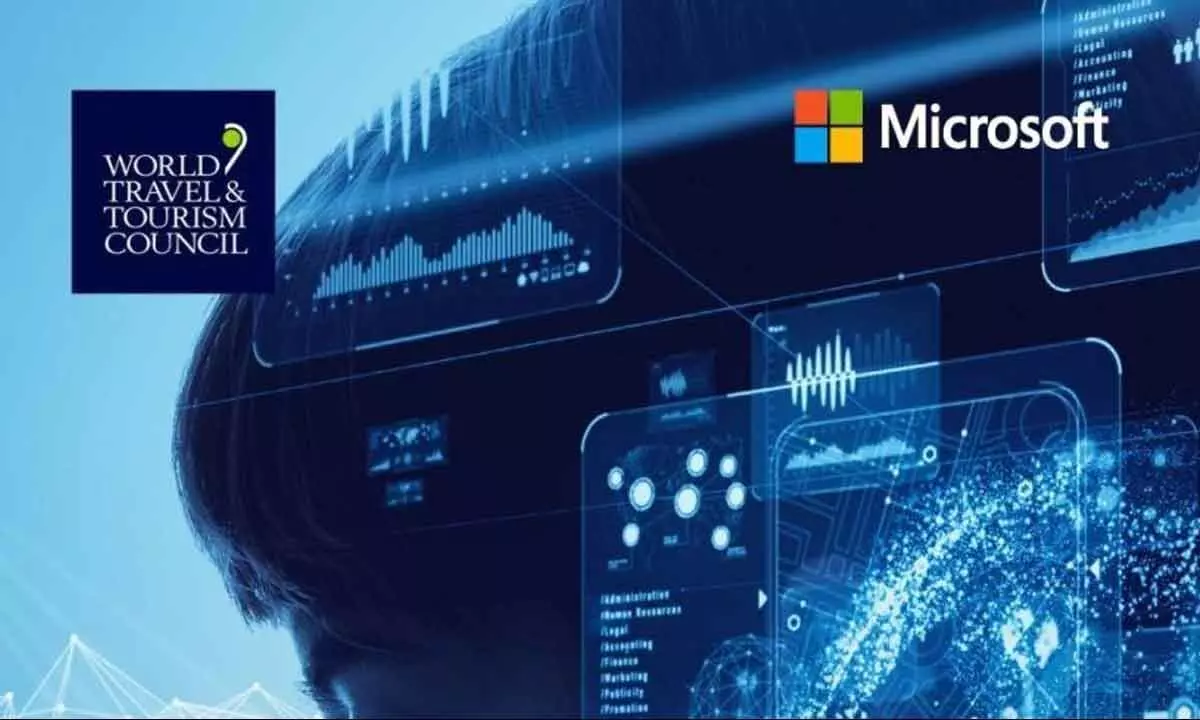AI set to shape the future of travel and tourism: WTTC
AI systems predict travel patterns, allowing companies to foresee demand, maximize price and effectively allocate resources
image for illustrative purpose

As we step into the era of advanced technology, Artificial Intelligence (AI) emerges as a pivotal force reshaping the landscape of the tourism industry. From personalized recommendations to predictive analytics, AI is revolutionizing how we explore the world.
Artificial intelligence is constantly improving, making it more reliable and attractive as a business solution. In particular, businesses in the travel industry are taking advantage of AI to perform various administrative and customer service tasks. Here, you will learn the uses and benefits of artificial intelligence and explain how it is changing how travel companies operate.
AI systems sift through enormous volumes of data to customize trip suggestions and schedules according to personal tastes. AI-powered chatbots offer immediate support, assisting tourists on their itinerary and responding to questions in real time.
AI systems predict travel patterns, allowing companies to foresee demand, maximize price, and effectively allocate resources. By controlling traffic, preserving natural resources, and reducing environmental effect, AI-enabled technologies promote environmentally friendly travel.
The capacity for artificial intelligence to perform tasks that have traditionally required human cognitive function has made it especially useful for those in the travel industry because deploying AI can save businesses time and money while potentially eliminating human error and allowing tasks to be performed quickly, at any time of the day.
Most hotels and resorts rely heavily on delivering excellent customer service to build their reputation, and AI technology can assist with this in various ways. For example, artificial intelligence can improve personalization, tailor recommendations, and guarantee fast response times, even without staff.
Artificial intelligence has advanced to the point where it is regularly used to assist and communicate with customers, ‘learning’ from each of these interactions and improving future interactions. Moreover, AI can assist with tasks like data analysis, calculations, and problem-solving, which can be valuable to hotel owners.
The final two reports of a series on Artificial Intelligence from WTTC entitled "Responsible Artificial Intelligence (AI): Overview of AI Risks, Safety & Governance" and "Artificial Intelligence (AI): Global Strategies, Policies & Regulations," underscore a commitment to a digital future that prioritises safety, ethical considerations, and responsible AI adoption.
"Responsible Artificial Intelligence (AI)" delves into the potential risks associated with AI deployment and offers strategies for establishing frameworks that promote transparency, accountability, and fairness.
From addressing bias and discrimination to ensuring human oversight of AI systems, this report empowers organisations to harness the power of AI responsibly.
In the fourth and final installment, "Artificial Intelligence (AI): Global Strategies, Policies & Regulations," WTTC provides a detailed overview of the AI ecosystem across key countries and international organisations.
It shows how policymakers are navigating the AI landscape and shaping regulations and strategies to foster AI innovation, while ensuring its ethical and responsible use.
Julia Simpson, WTTC President & CEO, said: “In a rapidly evolving landscape, AI emerges as a catalyst for positive change. The insights provided in these reports demonstrate that AI is not just a technological advancement; it is a strategic tool that can personalise customer experiences, drive sustainable improvements, and shape the future of Travel & Tourism.
“AI is already being used across our sector with incredible results. Several major hotel groups including Iberostar are using AI to monitor and reduce food waste, which recently resulted not only in a 27% cost saving but prevented thousands of kilos of unwanted food going to landfill. “
Julie Shainock, Managing Director, Travel, Transport, & Logistics Industry for Microsoft said: “We are seeing AI being embraced across the entire travel eco-system enhancing the customer experience, the employee experience and also driving more efficiency in operations, but we know we are only at the beginning of the journey.”
According to WTTC, AI has the power to revolutionise how businesses in the sector operate, offering immense opportunities for growth and innovation.
Both reports underscore the urgent need for travel and tourism businesses to embrace AI as a strategic priority, investing in talent and fostering collaboration between humans and AI.
But despite the sector's increasing recognition of AI's potential, challenges such as AI-skilled workforce shortages in the travel and tourism sector persist, highlighting the importance of proactive measures to overcome barriers to adoption.
As AI continues to reshape the world, WTTC remains at the forefront, advocating for safe, ethical, and inclusive AI innovation.
The future of tourism lies at the intersection of AI and human ingenuity. By harnessing the power of AI, we can create more personalized, efficient, and sustainable travel experiences for every globetrotter.

